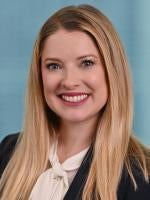On December 9, 2020, in Light Stream Spa v. State Farm Mutual Automobile Ins. Co., No 2:20-cv-00265-RAJ-LRL (E.D.V.A. Dec. 9, 2020), a Virginia federal court refused to dismiss a majority of the policyholder’s breach of contract claim and its request for bad faith damages, declaratory judgment and class certification, all stemming from the insurers’ denial of coverage for COVID-19 related business income losses. The policyholder, a spa, purchased an all-risk property insurance policy with coverage for, among other things, loss of business income and extra expense. The spa, a non-essential business, closed on March 16, 2020 as a result of state orders requiring all non-essential businesses to close due to the COVID-19 pandemic. It did not reopen until May 15. Once re-opened, however, the policyholder was required to implement operational controls and precautions to ensure the safety of the public and its employees. Following its closure, the policyholder sought coverage under its all-risk insurance policy. The insurer denied coverage for the claim, contending first that losses due to the COVID-19 pandemic and subsequent closure orders did not constitute “property damage” within the meaning of the policy and, second, even if the losses were because of “property damage,” the claim implicated various exclusions to coverage. The policyholder then initiated suit against its insurers.
The insurers moved to dismiss the spa’s breach of contract count and argued that the policy afforded coverage only for loss caused by a Covered Cause of Loss, which the policy defined as “accidental direct physical loss to covered property . . .” According to the insurers, the phrase “direct physical loss” requires some “structural damage” to property, and that COVID-19 does not meet this threshold because it does not cause structural damage to property. The insurers argued, therefore, that coverage under the policy had not been triggered in the first instance. The insurers further argued, however, that even if COVID-19 could cause damage to property, any loss would be excluded by three different exclusions: a so-called “virus” exclusion, a “law and ordinance” exclusion and an exclusion that purports to bar coverage for loss resulting from any act or decision by the insured. In a lengthy and well-reasoned decision, the court rejected each of the insurers’ arguments, dismissing only those portions of the spa’s claim that were based on the policies’ civil authority coverage, since the court found that the orders “were issued because ‘COVID-19 presents an ongoing threat to [Virginia] communities’, and not because of prior actual ‘physical damage’ to its own property or surrounding properties.”
In reaching its decision, the court employed the general principles of insurance policy interpretation, applying the policies’ plain meaning while narrowly construing coverage exclusions against the insurer and in favor of coverage. Moreover, the court applied the well-established principle regarding ambiguity, construing the policy’s language in favor of the policyholder where a provision is susceptible to more than one reasonable interpretation.
The court found the phrase “direct physical loss” to be the subject of “a spectrum of legal definitions,” which the court ultimately determined to require a finding of ambiguity. Specifically, the court found that the phrase has been interpreted by courts in Virginia and across the country as meaning either (1) “structural damage;” (2) “distinct and demonstrable physical alteration;” or (3) a loss of habitability, access and/or is dangerous to use. Because the court found that other judges had reasonably determined that the phrase as used in the policies to have differing meanings, the court concluded that the phrase was ambiguous and construed the phrase in favor of coverage.
The court also addressed each of the asserted exclusions, rejecting each of them. First, the court found that the policy’s Fungi, Virus or Bacteria Exclusion did not apply. The policyholder argued that governmental closure orders and not COVID-19, was the cause of the Spa’s loss. The insurer countered that broad concurrent causation language caused the exclusion to apply as long as COVID-19 was part of the causal chain that led to the loss. The court agreed with the Spa, finding that the effect of anti-concurrent causation language is not settled in Virginia. Further, the court found that the language only would apply where a virus had spread throughout the property, consistent with rulings from other federal courts. The court ultimately concluded that the exclusion required that the virus be the immediate cause of the chain of loss, which was not the case.
The court similarly found that the Ordinance and Law Exclusion did not apply because the state orders restricting businesses due to the pandemic did not fall within the parameters of the exclusion. According to the plain language of the policies, the exclusion applies only to laws and ordinances regulating the construction, use, repair, removal of debris, or physical aspects of the property. The court concluded, however, that the governmental orders are not ordinances or laws and, therefore, could not support application of this exclusion.
Finally, the court denied the insurer’s motion as to the Acts or Decisions Exclusion, barring coverage for any loss caused by “conduct, acts, or decisions of any person, group, organization, or governmental body. . .” Bluntly, the court rightly stated that the “exclusion is so ambiguous and broad, that taken literally under its plain reading, the Policy would be worthless as any act from any character of all persons, groups, or entities would prohibit coverage.”
Although Light Stream Spa represents another favorable decision for policyholder that have been so severely impacted by the COVID-19 pandemic, the decision illustrates why a proper analysis of the relevant policy provisions necessarily requires a finding of coverage for COVID-19 business income losses, particularly in cases that do not involve a “virus” exclusion or which include such an exclusion without broad concurrent causation wording. As Judge Jackson demonstrates through the court’s thorough analysis of the competing meanings of “direct physical loss,” where applicable policy interpretive rules require that the insurer show that its interpretation of the policy is the only reasonable interpretation, insurers cannot possibly meet that showing given the “spectrum of legal definitions” that courts have reasonably attached to the phrase. Correctly setting the prism through which the policy is analyzed is critical to reaching the correct result. Judge Jackson set it properly in Light Stream Spa and reached a proper conclusion.





 />i
/>i

